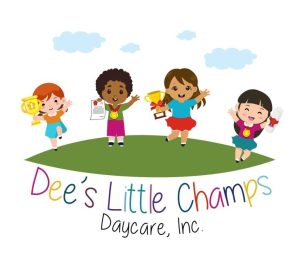When selecting a daycare, safety should be a top priority for parents. Ensuring your child is in a secure environment gives peace of mind and supports their well-being. Here’s what to look for to ensure safety at a daycare:
1. Cleanliness and Hygiene
A clean and well-maintained daycare is essential for minimizing the spread of germs and ensuring a healthy environment for your child. Pay close attention to the condition of the classrooms, bathrooms, and common areas. Daycare centers should have regular cleaning schedules, especially for high-touch areas like toys, tables, and play equipment.
Proper hygiene practices, such as handwashing stations and the availability of hand sanitizers, are crucial. Ensure that the daycare follows strict protocols regarding sick children, including clear policies about when children can return after an illness. A clean facility is a clear indicator of how well a daycare prioritizes the health of the children in its care.
2. Security Measures
Safety begins with controlling who has access to the daycare facility. Ask about the daycare’s entry procedures. Do they have a secure entry system, such as key card access or a locked front door that requires a code or staff permission to enter? Visitor logs and background checks for all staff members, including volunteers, are also critical components of a daycare’s security.
Daycare staff should be well-trained in safety protocols, and emergency drills for fire, severe weather, or lockdowns should be conducted regularly. You can also inquire about the facility’s safety certifications and any security measures they have for playgrounds or outdoor areas.
3. Staff Training and Qualifications
The qualifications of daycare staff are key to ensuring a safe environment. Caregivers should be trained in CPR, first aid, and other emergency procedures. Confirm that the daycare has a sufficient staff-to-child ratio, as having enough caregivers to provide adequate supervision is crucial for preventing accidents.
In addition to safety training, the staff should be knowledgeable about child development and know how to respond appropriately to various situations, from minor injuries to behavioral issues. Look for a daycare with experienced, well-trained staff members who are certified in early childhood education.
4. Emergency Preparedness
Daycares should be prepared for any kind of emergency. Ask about their protocols for handling medical emergencies, injuries, or accidents. Does the daycare have a plan in place for contacting parents, and are there backup caregivers in case of emergencies?
Make sure the daycare has a stocked first-aid kit and that staff are trained to use it. It’s also important that the daycare maintains up-to-date contact information for all parents and emergency contacts, along with medical details for each child (allergies, medications, etc.).
5. Safe and Age-Appropriate Equipment
Daycare centers should provide safe, age-appropriate toys and equipment. All furniture and play items should be in good condition, free of sharp edges, and non-toxic. In outdoor play areas, look for proper fencing, soft landing surfaces under climbing structures, and clear separation of age groups to prevent accidents.
Daycare staff should inspect equipment regularly to ensure everything is safe for use, and any broken or dangerous items should be removed immediately. Ensuring the safety of toys, furniture, and playground equipment is a key factor in preventing injuries.
6. Child Supervision and Accountability
Constant supervision is one of the most important aspects of daycare safety. Children should never be left unsupervised, especially during playtime or outdoor activities. Make sure the daycare has a strict system for keeping track of children throughout the day, including headcounts during transitions between activities.
The staff should also have a plan for managing behavioral issues that might arise, such as conflicts between children, and be trained to intervene before situations escalate. Clear policies regarding discipline, nap times, and mealtime supervision are important aspects of ensuring that each child is cared for and safe.
7. Health Policies and Immunization Requirements
Daycares should have strict health policies that prioritize the well-being of all children. Ask about their requirements for immunizations and whether they enforce any exclusion policies for sick children. Children should not be allowed to attend daycare when they are contagious, and the center should have clear guidelines about returning after illness.
Additionally, it’s important to know the daycare’s policies for administering medication. Some daycares may require written consent from parents or a doctor’s note, and all medications should be stored securely out of children’s reach.
8. Open Communication with Parents
Daycares that prioritize safety will keep parents informed about their child’s day-to-day activities and any incidents that occur. Look for a daycare that encourages open communication with parents, whether through daily reports, phone calls, or communication apps.
A daycare that fosters strong communication with parents is more likely to address any safety concerns promptly and transparently. Regular updates about your child’s behavior, health, and progress can give you confidence that your child is well cared for.
Conclusion
Choosing a daycare that prioritizes safety is essential for your peace of mind and your child’s well-being. By looking for a facility that follows strict safety protocols, maintains a clean environment, has well-trained staff, and communicates openly with parents, you can ensure that your child is in a secure, nurturing environment. Take the time to visit and observe the daycare, ask questions, and review their safety policies to make an informed decision. Ultimately, the right daycare will provide a safe space where your child can learn, grow, and thrive.

